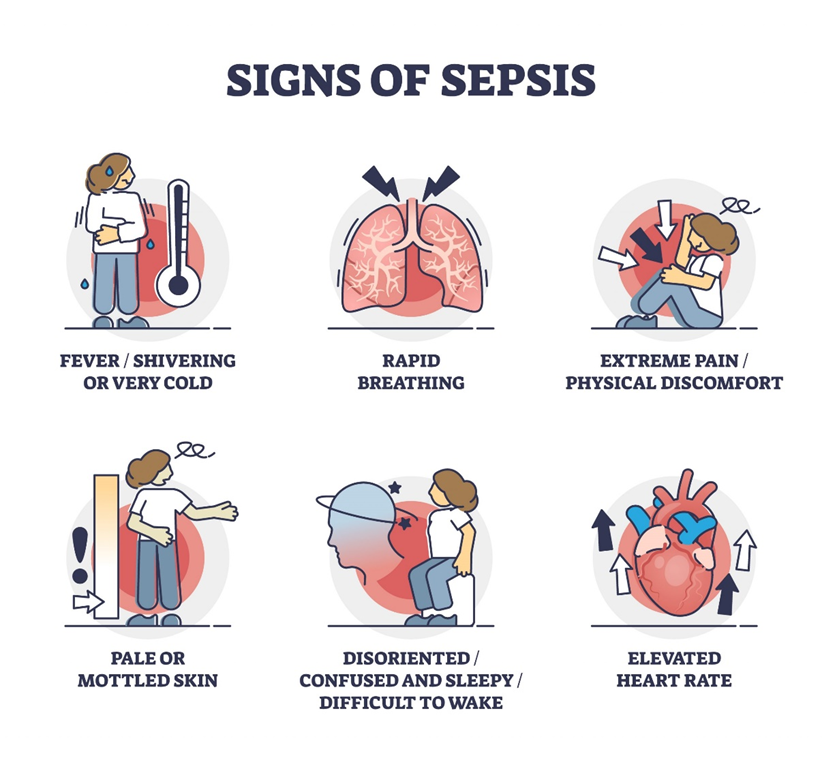Which diagnostic studies will the nurse monitor for the client being treated for sepsis? Select all that apply.
Platelet count
Urine specific gravity
Lactate level
PaO2
Serum ammonia
Correct Answer : A,C,D
Choice A reason: Monitoring platelet count is important in sepsis as thrombocytopenia can occur due to disseminated intravascular coagulation (DIC).
Choice B reason: Urine specific gravity is not typically monitored for sepsis unless there is a concern for renal function or fluid balance.
Choice C reason: Lactate levels are monitored in sepsis to assess the severity of septic shock and tissue hypoperfusion.
Choice D reason: PaO2 is monitored to assess oxygenation status, which can be compromised in sepsis due to respiratory dysfunction.
Choice E reason: Serum ammonia is not typically monitored for sepsis unless there is a concern for hepatic function or encephalopathy.

Nursing Test Bank
Naxlex Comprehensive Predictor Exams
Related Questions
Correct Answer is D
Explanation
The correct answer is d. Urine output 60 mL.
Choice A reason: A pulse oximetry reading of 96% is within normal limits and does not indicate an ineffective response to the medications.
Choice B reason: A heart rate of 77, regular, is also within normal limits and does not suggest an ineffective response.
Choice C reason: Trace bilateral ankle edema may persist even after effective treatment due to residual effects of heart failure.
Choice D reason: A urine output of 60 mL over 2 hours post-diuretic administration suggests an inadequate response, as furosemide is expected to produce a significant diuresis to reduce fluid overload in acute heart failure.
Correct Answer is C
Explanation
Choice A reason: While assessing temperature is important for monitoring infection, it is not the immediate priority in the treatment of UTI and sepsis.
Choice B reason: Monitoring urine output is crucial for a UTI but does not address the systemic infection that sepsis represents.
Choice C reason: Administering antibiotics is the most critical intervention for a client with sepsis due to a UTI, as it directly addresses the underlying infection and can be life-saving.
Choice D reason: Evaluating the current CBC is important for understanding the client's baseline and response to infection but is secondary to the administration of antibiotics.
Whether you are a student looking to ace your exams or a practicing nurse seeking to enhance your expertise , our nursing education contents will empower you with the confidence and competence to make a difference in the lives of patients and become a respected leader in the healthcare field.
Visit Naxlex, invest in your future and unlock endless possibilities with our unparalleled nursing education contents today
Report Wrong Answer on the Current Question
Do you disagree with the answer? If yes, what is your expected answer? Explain.
Kindly be descriptive with the issue you are facing.
